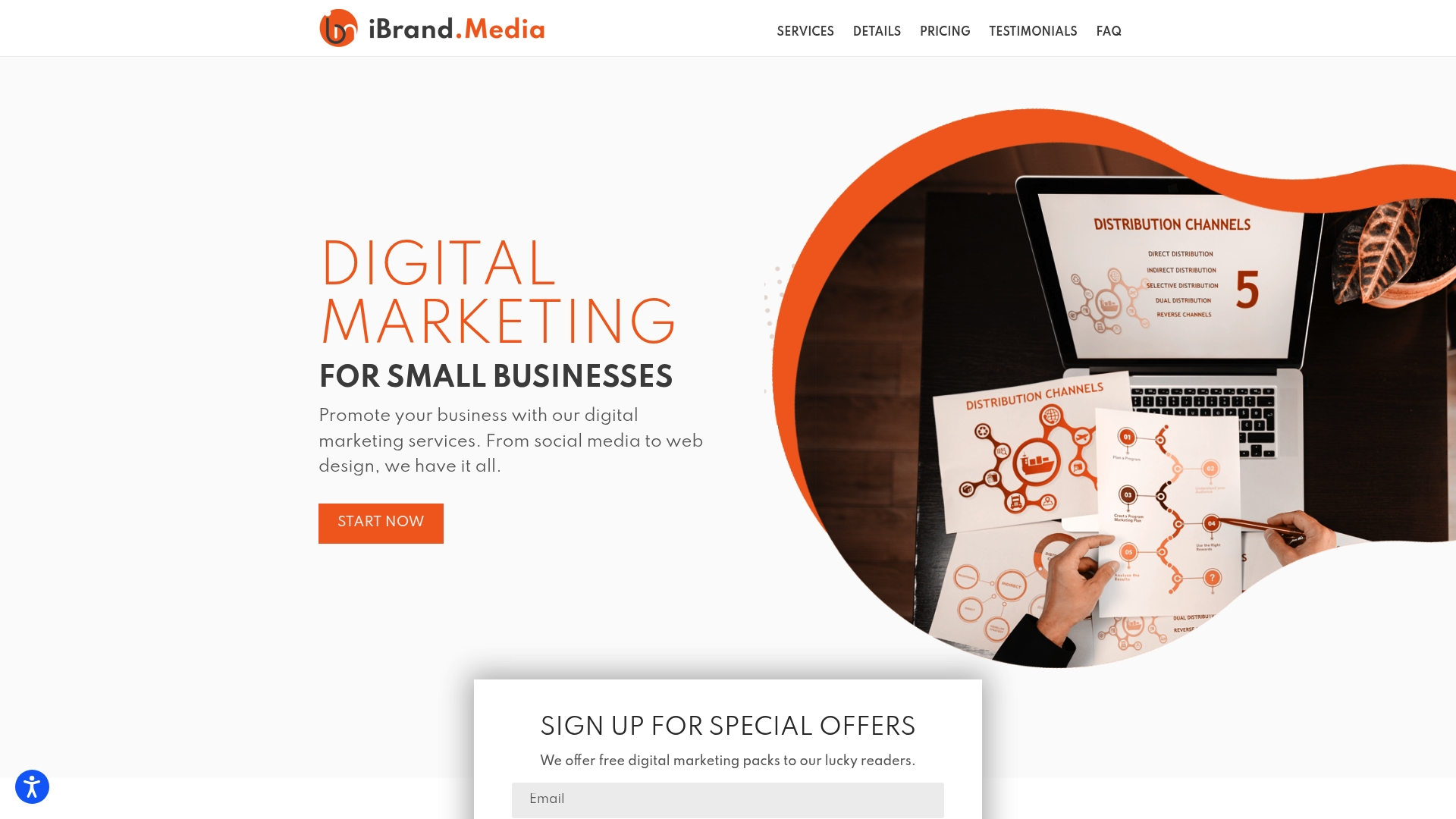Most small business owners believe that landing on the first page of Google will solve all their problems, yet over 60 percent of high-ranking websites fail to convert visitors into customers. SEO has become a critical tool for visibility, but myths and outdated tactics often lead to wasted effort. By understanding what SEO really involves and separating fact from fiction, you can make smarter moves and attract the right audience to grow your business online.
Table of Contents
- Defining SEO and Common Misconceptions
- Types of SEO: On-Page, Off-Page, Technical
- How Search Engines Rank Websites
- Key SEO Ranking Factors and Signals
- Risks, Costs, and Common SEO Mistakes
Key Takeaways
| Point | Details |
|---|---|
| Understanding SEO | SEO is a strategic approach that enhances online visibility, requiring ongoing effort rather than a one-time task. |
| Common Misconceptions | Misunderstandings, such as the belief that high rankings always lead to sales, can impede effective SEO strategies. |
| Types of SEO | On-Page, Off-Page, and Technical SEO are essential components that together improve search engine performance and user experience. |
| Avoiding Mistakes | Key pitfalls like keyword stuffing and neglecting mobile optimization can harm your SEO efforts; focus on authentic, user-centered content instead. |
Defining SEO and Common Misconceptions
Search Engine Optimization (SEO) is your digital roadmap for getting noticed online. SEO represents strategic techniques that help your website rank higher in search engine results, making it easier for potential customers to find your business. Think of it like digital real estate positioning your storefront exactly where most people are walking by.
According to Bentley University, not all SEO efforts directly translate into business success. Many small business owners mistakenly believe that high search rankings automatically guarantee increased sales. In reality, SEO is more nuanced – it’s about attracting the right audience and converting website visitors into actual customers.
Common SEO misconceptions can derail your digital marketing strategy. Here are some key myths to avoid:
- Keyword Stuffing Works: Cramming your content with random keywords doesn’t improve rankings. Modern search algorithms prioritize meaningful, high-quality content.
- SEO is a One-Time Task: Effective SEO requires consistent effort and adaptation to changing search engine algorithms.
- More Traffic Equals More Sales: Quantity doesn’t always mean quality. Targeted, relevant traffic matters more than sheer visitor numbers.
Successful SEO is about understanding your audience, creating valuable content, and strategically positioning your online presence. It’s a marathon, not a sprint – requiring patience, consistent effort, and a willingness to learn and adapt.
Types of SEO: On-Page, Off-Page, Technical
Search Engine Optimization isn’t a one-size-fits-all strategy. SEO actually encompasses three distinct approaches: On-Page, Off-Page, and Technical SEO – each playing a unique role in improving your website’s search engine visibility. These strategies work together like a well-oiled machine to boost your online presence.
According to GeeksforGeeks, the three primary SEO types each serve a critical purpose. On-Page SEO focuses on optimizing individual web pages through strategic content creation, keyword integration, and metadata improvements. This means crafting compelling titles, using relevant keywords naturally, and ensuring your content directly answers user queries.
Off-Page SEO operates beyond your website’s boundaries. It’s about building domain authority through external signals like:
- Quality backlinks from reputable websites
- Social media mentions and shares
- Online reviews and reputation management
- Guest blogging and industry collaborations
Technical SEO forms the foundation of your website’s search performance. As Digital Marketing Notes explains, this involves ensuring your site meets search engine requirements. Key technical elements include:
- Fast page loading speeds
- Mobile device responsiveness
- Secure HTTPS connections
- Clean, crawlable site structure
- XML sitemap optimization
Think of Technical SEO like the infrastructure of a building – without a solid foundation, no amount of interior design or external marketing will make it stable. For small businesses, mastering these three SEO types means creating a comprehensive strategy that attracts, engages, and converts potential customers.
How Search Engines Rank Websites
Search engines are like sophisticated digital librarians, constantly sorting and organizing the massive library of online content. Their goal? To deliver the most relevant, high-quality results whenever someone searches for information. Website ranking isn’t random – it’s a complex process driven by multiple strategic factors that determine your online visibility.
According to the Universal Business Council, search engines evaluate websites through intricate processes of crawling and indexing. They don’t just look at keywords – they analyze entire user experiences, examining elements like content quality, site structure, and overall website authority. Think of it like a comprehensive job interview for your website.
Key ranking factors that search engines consider include:
- Content Relevance: How well your content matches user search intent
- User Experience: Site navigation, mobile responsiveness, page loading speed
- Technical Performance: Secure connections, clean site architecture
- Domain Authority: Quality and quantity of external websites linking to you
- Engagement Metrics: Time spent on site, bounce rates, click-through rates
Knowway.org emphasizes that no single factor guarantees top rankings. Search engine algorithms are dynamic, constantly evolving systems that consider multiple variables. For small businesses, this means creating a holistic approach that balances high-quality content, technical optimization, and genuine user value.
 Your website isn’t just competing against other sites – it’s proving its worth to both search engines and potential customers.
Your website isn’t just competing against other sites – it’s proving its worth to both search engines and potential customers.

Key SEO Ranking Factors and Signals
Search engines are intricate systems that evaluate websites through a complex network of ranking signals. Ranking factors are like a digital scoring system, determining how prominently your website appears in search results. Understanding these signals is crucial for small businesses looking to improve their online visibility and attract more potential customers.
According to Knowway.org, search engine algorithms consider multiple interconnected factors when ranking websites. These aren’t just simple checkboxes, but a sophisticated evaluation of your website’s overall quality, relevance, and user experience.
Key ranking signals can be categorized into several critical areas:
On-Page Ranking Factors:
- Keyword Optimization: Strategic placement in titles, headers, and content
- Content Quality: Depth, relevance, and unique value
- Meta Descriptions: Compelling summaries that encourage clicks
- Page Load Speed: Faster websites rank higher
Off-Page Ranking Factors:
- Backlink Quality: Authoritative websites linking to your content
- Social Signals: Shares, mentions, and engagement
- Domain Authority: Overall reputation and credibility
2-5.org highlights the importance of technical elements like TF-IDF (Term Frequency-Inverse Document Frequency), which helps search engines understand content relevance. For small businesses, this means creating genuine, high-quality content that serves your audience’s specific needs – not just stuffing keywords or gaming the system.
Remember, SEO is a marathon, not a sprint. Consistent, authentic efforts to provide value will always outperform short-term manipulation tactics.
Risks, Costs, and Common SEO Mistakes
Navigating the world of SEO can feel like walking through a minefield for small business owners. SEO mistakes can be costly, potentially damaging your online reputation and wasting valuable time and resources. Understanding these pitfalls is crucial to developing a strategic and effective digital marketing approach.
According to Bentley University, many businesses fall into the trap of obsessing over search rankings without considering the actual business impact. High search rankings don’t automatically translate to increased sales or profitability. The real goal should be attracting qualified traffic that converts into genuine business opportunities.
Common SEO mistakes that small businesses often make include:
Dangerous SEO Practices to Avoid:
- Keyword Stuffing: Overloading content with keywords makes it unreadable
- Buying Backlinks: Artificial link-building can trigger search engine penalties
- Ignoring Mobile Optimization: Most searches happen on mobile devices
- Duplicate Content: Copying content across multiple pages reduces credibility
- Neglecting Local SEO: Missing out on location-based search opportunities
The International Journal of Engineering Research & Technology emphasizes that authentic strategies matter more than manipulative techniques. Search engines have become incredibly sophisticated at detecting and penalizing artificial ranking attempts. For small businesses, this means focusing on genuine value creation – producing high-quality, relevant content that truly serves your target audience’s needs.
Smart SEO isn’t about gaming the system. It’s about building a credible, user-friendly online presence that naturally attracts and retains potential customers.
Unlock Your Small Business Potential with Expert SEO Support
Many small businesses struggle with understanding how SEO works and making it drive real results. This guide highlights key challenges like attracting the right audience, avoiding costly mistakes such as keyword stuffing, and building a solid technical foundation that search engines reward. If you find SEO overwhelming or time-consuming, you are not alone. Your goal is to have a clear, effective strategy that increases quality traffic and converts visitors into customers without wasting resources.
Our team at iBrand Media specializes in helping small and medium-sized businesses cut through the confusion with tailored SEO strategies that focus on On-Page, Off-Page, and Technical SEO elements that truly matter. From mobile-friendly web design to local marketing and transparent pricing, we ensure your online presence grows steadily and authentically.
Take the first step towards mastering your SEO journey by exploring our Uncategorized | Ibrandmedia insights that complement this guide.

Ready to stop guessing and start growing? Visit ibrand.media now to discover our personalized SEO services and launch your tailored digital marketing plan. Don’t wait for your competitors to outrank you. Act now and transform your online presence with iBrand Media. Learn more at Uncategorized | Ibrandmedia.
Frequently Asked Questions
What is SEO and why is it important for small businesses?
SEO, or Search Engine Optimization, is a set of strategies to improve your website’s visibility in search engine results. It’s important for small businesses because it helps attract potential customers, increase website traffic, and ultimately drive sales by ensuring your business is discoverable online.
What are the main types of SEO?
The main types of SEO are On-Page, Off-Page, and Technical SEO. On-Page SEO focuses on optimizing individual web pages through content and keyword optimization. Off-Page SEO involves building domain authority through backlinks and social signals, while Technical SEO ensures your website meets the performance requirements of search engines, including site speed and mobile responsiveness.
How do search engines rank websites?
Search engines rank websites based on various factors including content relevance, user experience, technical performance, domain authority, and engagement metrics. They analyze the overall quality and relevance of your site to deliver the best results for user queries.
What are common SEO mistakes small businesses should avoid?
Common SEO mistakes include keyword stuffing, buying backlinks, neglecting mobile optimization, duplicating content, and ignoring local SEO. These practices can lead to penalties from search engines and diminish your website’s credibility and effectiveness.
Recommended
- Understanding Why Your Business Needs SEO for Growth | Ibrandmedia
- What Is SEO Optimization? Simple Guide for Small Businesses | Ibrandmedia
- Top SEO Techniques for Small Business Owners in 2025 | Ibrandmedia
- Understanding SEO Optimization for Beginners | Ibrandmedia
- Suchmaschinenmarketing SEO: Verständnis und Erklärung
- What Is Local SEO? Complete Guide for NZ Businesses | Website Design & Google Ads That Generate Leads

Recent Comments